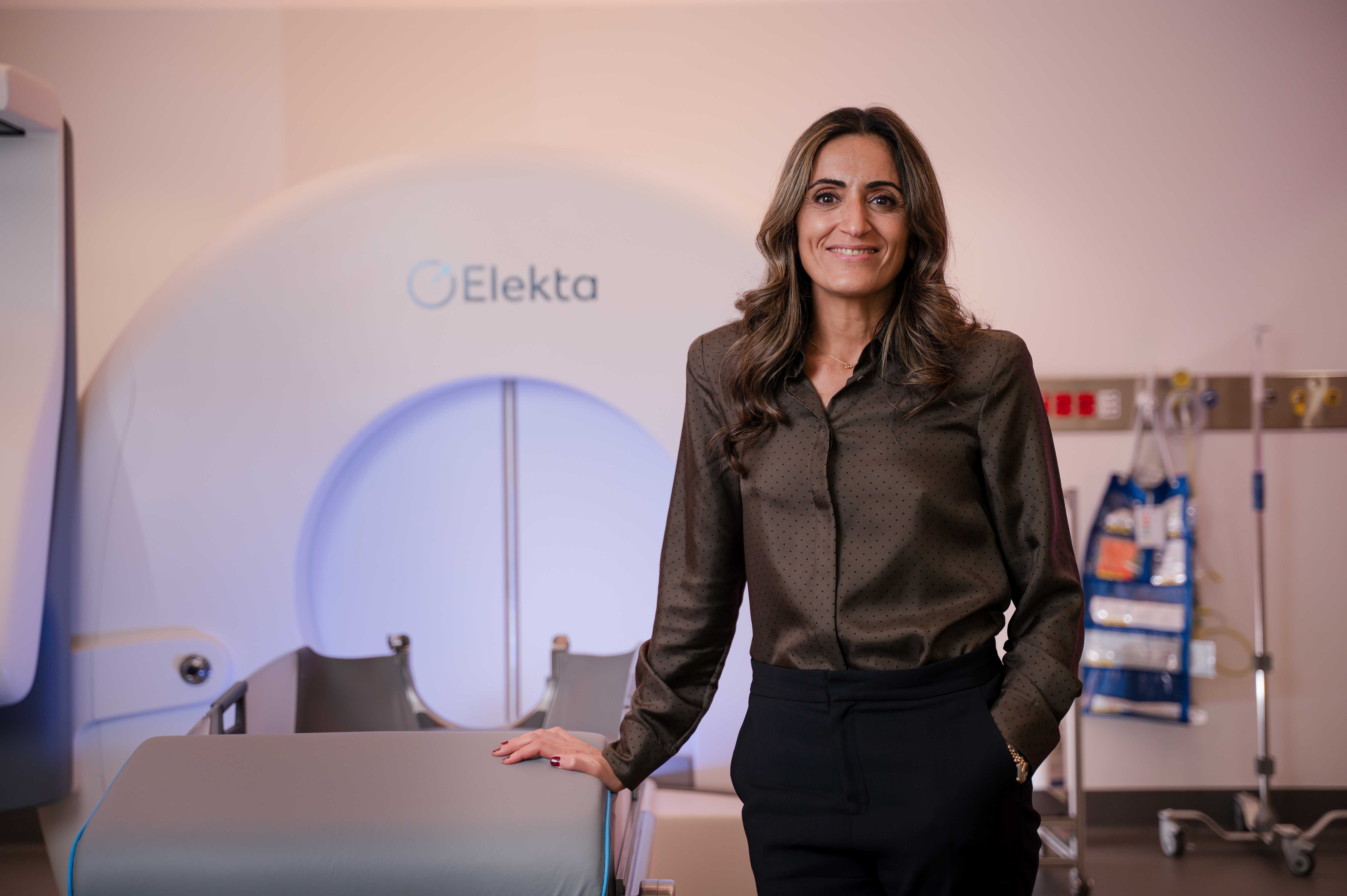Neda Haghighi Q&A

Neda Haghighi
Radiation Oncologist - Clinical lead Gamma Knife
What are you researching in lay terms?
My study relates to patients with secondary brain tumours (brain metastases) from primary solid cancers in the body, who require brain surgery and radiotherapy. Current standard of care internationally is one dose of stereotactic radiotherapy prior to surgery to reduce the risk of cancer coming back in the brain after surgery. The results from this approach are favourable but can potentially be improved by delivering the radiation dose in smaller fractions. The superior outcomes of more than one dose of radiation have been reported in limited series but this concept has never been investigated in a trial in a controlled and prospective fashion. I'm researching if treatment of the brain metastases with 3 smaller doses of stereotactic radiotherapy is more effective than one single dose of stereotactic radiotherapy delivered before brain surgery.
What motivated you to come and work at Peter Mac?
My peers and the high level of academic productivity.
What drives you to achieve better outcomes for cancer patients?
When I see opportunities or treatment modalities that may improve patient outcomes and support the patient's Quality Of Life (QOL), I am always motivated to work towards exploring such avenues. On a human level, I don't think you can work in oncology without wanting better outcomes for all patients affected by cancer.
How will your research improve outcomes for cancer patients?
I am hoping that this research will clarify the most effective and safe radiation schedule for patients with brain metastases requiring surgical resection. By optimising the radiotherapy dose and technique we may be able to provide a higher chance of tumour control in the brain with lower risk of recurrence and side effects. Furthermore, the more effective technique may improve patients QOL by saving them from further invasive intervention which is often required after tumour recurrence.
What do you like most about working for Peter Mac?
Peer support.
Can you please detail how your research has used and benefitted from the core facilities at Peter Mac?
Robust and efficient research staff with excellent knowledge. Research infrastructure and wealth of accessible information on how to progress one's project.
